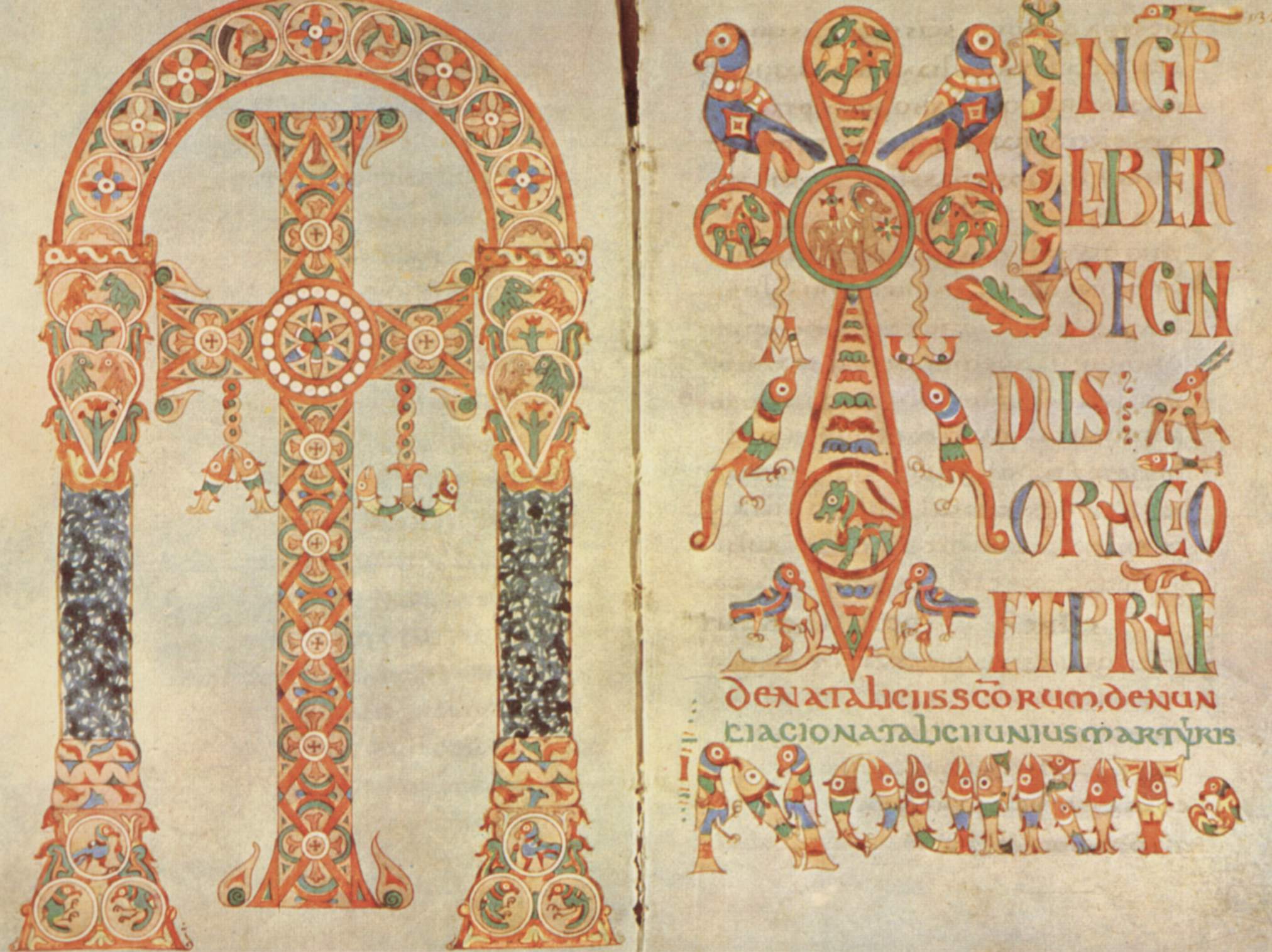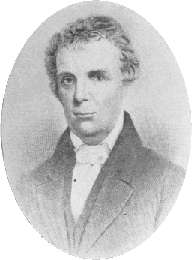|
Doxology
A doxology (Ancient Greek: ''doxologia'', from , ''doxa'' 'glory' and -, -''logia'' 'saying') is a short hymn of praises to God in various forms of Christian worship, often added to the end of canticles, psalms, and hymns. The tradition derives from a similar practice in the Jewish synagogue, where some version of the Kaddish serves to terminate each section of the service. Trinitarian doxology Among Christian traditions a doxology is typically an expression of praise sung to the Holy Trinity: the Father, the Son, and the Holy Spirit. It is common in high hymns for the final stanza to take the form of a doxology. Doxologies occur in the Eucharistic prayers, the Liturgy of the Hours, hymns, and various Catholic devotions such as novenas and the Rosary. ''Gloria in excelsis Deo'' The Gloria in excelsis Deo, also called the Greater Doxology, is a hymn beginning with the words that the angels sang when the birth of Christ was announced to shepherds in . Other verses were adde ... [...More Info...] [...Related Items...] OR: [Wikipedia] [Google] [Baidu] |
Gloria Patri
The Gloria Patri, also known as the Glory Be to the Father or, colloquially, the Glory Be, is a doxology, a short hymn of praise to God in various Christian liturgies. It is also referred to as the Minor Doxology ''(Doxologia Minor)'' or Lesser Doxology, to distinguish it from the Greater Doxology, the Gloria in Excelsis Deo. The earliest Christian doxologies are addressed to the Father "through" (╬┤╬╣ßĮ░) the Son, or to the Father and the Holy Spirit with (╬╝╬ĄŽä╬¼) the Son, or to the Son with (ŽāŽŹ╬Į) the Father and the Holy Spirit. The Trinitarian doxology addressed in parallel fashion to all three Divine Persons of the Trinity, joined by ''and'' (╬║╬▒╬»), as in the form of baptism, Matthew 28:19, became universal in Nicaean Christianity, which was established as the official faith of the Church with the Edict of Thessalonica in 380. Greek version The Greek wording is as follows: :, : Glory be to the Father :Glory to the Father, and to the Son, and to the Holy Spiri ... [...More Info...] [...Related Items...] OR: [Wikipedia] [Google] [Baidu] |
Eucharistic Prayer
The Anaphora is the most solemn part of the Divine Liturgy, or the Holy Sacrifice of the Mass, a thanksgiving prayer by virtue of which the offerings of bread and wine are believed to be consecrated as the body and blood of Christ. This is the usual name for this part of the Liturgy in Greek-speaking Eastern Christianity. In the Eastern Syriac tradition ''Quda┼Īa'' is its equivalent. The corresponding part in western Christian liturgy is nowadays most often called the Eucharistic Prayer. The Roman Rite from the 4th century until after Vatican II had a single such prayer, called the Canon of the Mass. "Anaphora" is a Greek word () meaning a "carrying up" (as distinguished from the use of the same word, then meaning a "carrying back", in rhetoric and linguistics), and so an "offering" (hence its use in reference to the offering of sacrifice to God). In the sacrificial language of the Greek version of the Old Testament known as the Septuagint, (prospherein) is used of the offerer's ... [...More Info...] [...Related Items...] OR: [Wikipedia] [Google] [Baidu] |
Liturgy Of The Hours
The Liturgy of the Hours (Latin: ''Liturgia Horarum'') or Divine Office (Latin: ''Officium Divinum'') or ''Opus Dei'' ("Work of God") are a set of Catholic Church, Catholic prayers comprising the canonical hours, often also referred to as the breviary, of the Latin Church. The Liturgy of the Hours forms the official set of prayers "marking the hours of each day and sanctifying the day with prayer." The term "Liturgy of the Hours" has been retroactively applied to the practices of saying the canonical hours in both the Eastern Christianity, Christian East and Western Christianity, WestŌĆōparticularly within the Latin liturgical ritesŌĆōprior to the Second Vatican Council, and is the official term for the canonical hours promulgated for usage by the Latin Church in 1971. Before 1971, the official form for the Latin Church was the ''Roman Breviary, Breviarium Romanum'', first published in 1568 with major editions through 1962. The Liturgy of the Hours, like many other forms of the c ... [...More Info...] [...Related Items...] OR: [Wikipedia] [Google] [Baidu] |
Hymn
A hymn is a type of song, and partially synonymous with devotional song, specifically written for the purpose of adoration or prayer, and typically addressed to a deity or deities, or to a prominent figure or personification. The word ''hymn'' derives from Greek (''hymnos''), which means "a song of praise". A writer of hymns is known as a hymnist. The singing or composition of hymns is called hymnody. Collections of hymns are known as hymnals or hymn books. Hymns may or may not include instrumental accompaniment. Although most familiar to speakers of English in the context of Christianity, hymns are also a fixture of other world religions, especially on the Indian subcontinent ('' stotras''). Hymns also survive from antiquity, especially from Egyptian and Greek cultures. Some of the oldest surviving examples of notated music are hymns with Greek texts. Origins Ancient Eastern hymns include the Egyptian '' Great Hymn to the Aten'', composed by Pharaoh Akhenaten; the Hu ... [...More Info...] [...Related Items...] OR: [Wikipedia] [Google] [Baidu] |
Psalms
The Book of Psalms ( or ; he, ū¬ų░ų╝ūöų┤ū£ų┤ų╝ūÖūØ, , lit. "praises"), also known as the Psalms, or the Psalter, is the first book of the ("Writings"), the third section of the Tanakh, and a book of the Old Testament. The title is derived from the Greek translation, (), meaning "instrumental music" and, by extension, "the words accompanying the music". The book is an anthology of individual Hebrew religious hymns, with 150 in the Jewish and Western Christian tradition and more in the Eastern Christian churches. Many are linked to the name of David, but modern mainstream scholarship rejects his authorship, instead attributing the composition of the psalms to various authors writing between the 9th and 5th centuries BC. In the Quran, the Arabic word ŌĆśZaburŌĆÖ is used for the Psalms of David in the Hebrew Bible. Structure Benedictions The Book of Psalms is divided into five sections, each closing with a doxology (i.e., a benediction). These divisions were probably introdu ... [...More Info...] [...Related Items...] OR: [Wikipedia] [Google] [Baidu] |
Kaddish
Kaddish or Qaddish or Qadish ( arc, ū¦ūōūÖū® "holy") is a hymn praising God that is recited during Jewish prayer services. The central theme of the Kaddish is the magnification and sanctification of God's name. In the liturgy, different versions of the Kaddish are functionally chanted or sung as separators of the different sections of the service. The term ''Kaddish'' is often used to refer specifically to "The Mourner's Kaddish," which is chanted as part of the mourning rituals in Judaism in all prayer services, as well as at funerals (other than at the gravesite; see Kaddish acher kevurah ''"Qaddish after Burial"'') and memorials; for 11 Hebrew months after the death of a parent; and in some communities for 30 days after the death of a spouse, sibling, or child. When mention is made of "saying Kaddish", this often refers to the rituals of mourning. Mourners recite Kaddish to show that despite the loss they still praise God. Along with the Shema Yisrael and the Amidah, the ... [...More Info...] [...Related Items...] OR: [Wikipedia] [Google] [Baidu] |
United Protestant
A united church, also called a uniting church, is a church formed from the merger or other form of church union of two or more different Protestant Christian denominations. Historically, unions of Protestant churches were enforced by the state, usually in order to have a stricter control over the religious sphere of its people, but also other organizational reasons. As modern Christian ecumenism progresses, unions between various Protestant traditions are becoming more and more common, resulting in a growing number of united and uniting churches. Examples include the United Church of Canada (1925), the Church of North India (1970), the Uniting Church in Australia (1977), the Protestant Church in the Netherlands (2004), and the United Protestant Church of France (2013). Since the mid-20th century, and the rise of secularism worldwide, mainline Protestantism has shrunk. Among others, Reformed (Calvinist), Anglican, and Lutheran churches have merged, often creating large nation ... [...More Info...] [...Related Items...] OR: [Wikipedia] [Google] [Baidu] |
Reformed Baptist
Reformed Baptists (sometimes known as Particular Baptists or Calvinistic Baptists) are Baptists that hold to a Calvinist soteriology (salvation). The first Calvinist Baptist church was formed in the 1630s. The 1689 Baptist Confession of Faith was written along Calvinist Baptist lines. The name ŌĆ£Reformed BaptistŌĆØ dates from the latter part of the 20th Century to denote Baptists who have adopted elements of Reformed theology, but retained Baptist ecclesiology. Variations Strict Baptists Groups calling themselves Strict Baptists are often differentiated from those calling themselves "Reformed Baptists", sharing the same Calvinist doctrine, but differing on ecclesiastical polity; "Strict Baptists" generally prefer a congregationalist polity. The group of Strict Baptists called Strict and Particular Baptists are Baptists who believe in a Calvinist interpretation of Christian salvation. The Particular Baptists arose in England in the 17th century and took their name from th ... [...More Info...] [...Related Items...] OR: [Wikipedia] [Google] [Baidu] |
Disciples Of Christ
The Christian Church (Disciples of Christ) is a mainline Protestant Christian denomination in the United States and Canada. The denomination started with the Restoration Movement during the Second Great Awakening, first existing during the 19th century as a loose association of churches working towards Christian unity, then slowly forming quasi-denominational structures through missionary societies, regional associations, and an international convention. In 1968, the Disciples of Christ officially adopted a denominational structure at which time a group of churches left to remain nondenominational. It is often referred to as The Christian Church, The Disciples of Christ, The Disciples, or the DOC. The Christian Church was a charter participant in the formation of the World Council of Churches (WCC) and of the Federal Council of Churches (now the National Council of Churches), and it continues to be engaged in ecumenical conversations. The Disciples' local churches are congreg ... [...More Info...] [...Related Items...] OR: [Wikipedia] [Google] [Baidu] |
Roman Catholic
Roman or Romans most often refers to: *Rome, the capital city of Italy *Ancient Rome, Roman civilization from 8th century BC to 5th century AD *Roman people, the people of ancient Rome *''Epistle to the Romans'', shortened to ''Romans'', a letter in the New Testament of the Christian Bible Roman or Romans may also refer to: Arts and entertainment Music *Romans (band), a Japanese pop group * ''Roman'' (album), by Sound Horizon, 2006 * ''Roman'' (EP), by Teen Top, 2011 *"Roman (My Dear Boy)", a 2004 single by Morning Musume Film and television *Film Roman, an American animation studio * ''Roman'' (film), a 2006 American suspense-horror film * ''Romans'' (2013 film), an Indian Malayalam comedy film * ''Romans'' (2017 film), a British drama film * ''The Romans'' (''Doctor Who''), a serial in British TV series People * Roman (given name), a given name, including a list of people and fictional characters * Roman (surname), including a list of people named Roman or Romans *ß┐¼Žē╬╝╬▒ß ... [...More Info...] [...Related Items...] OR: [Wikipedia] [Google] [Baidu] |







